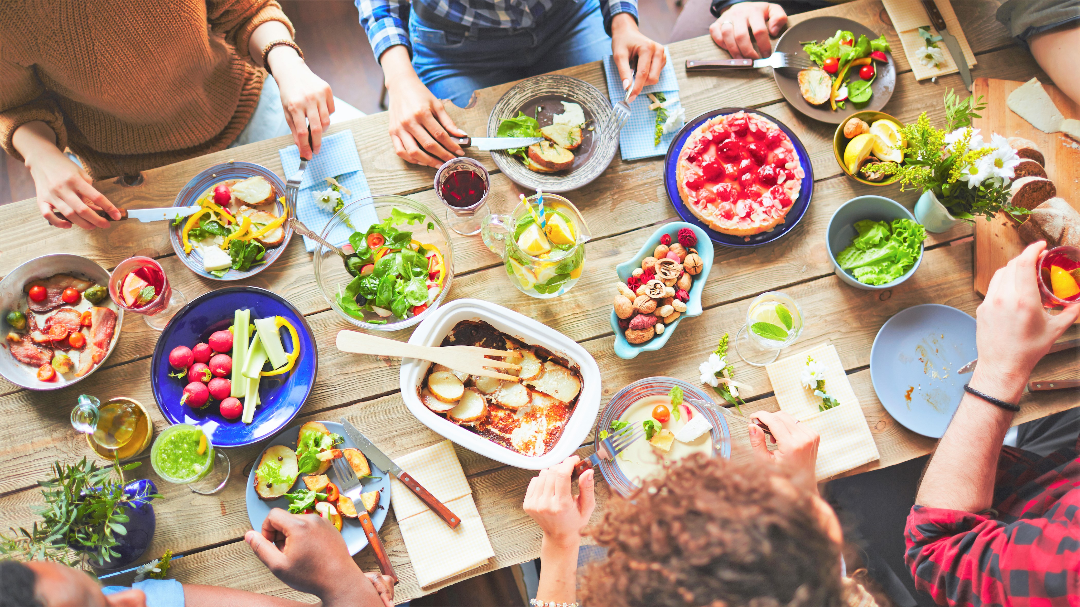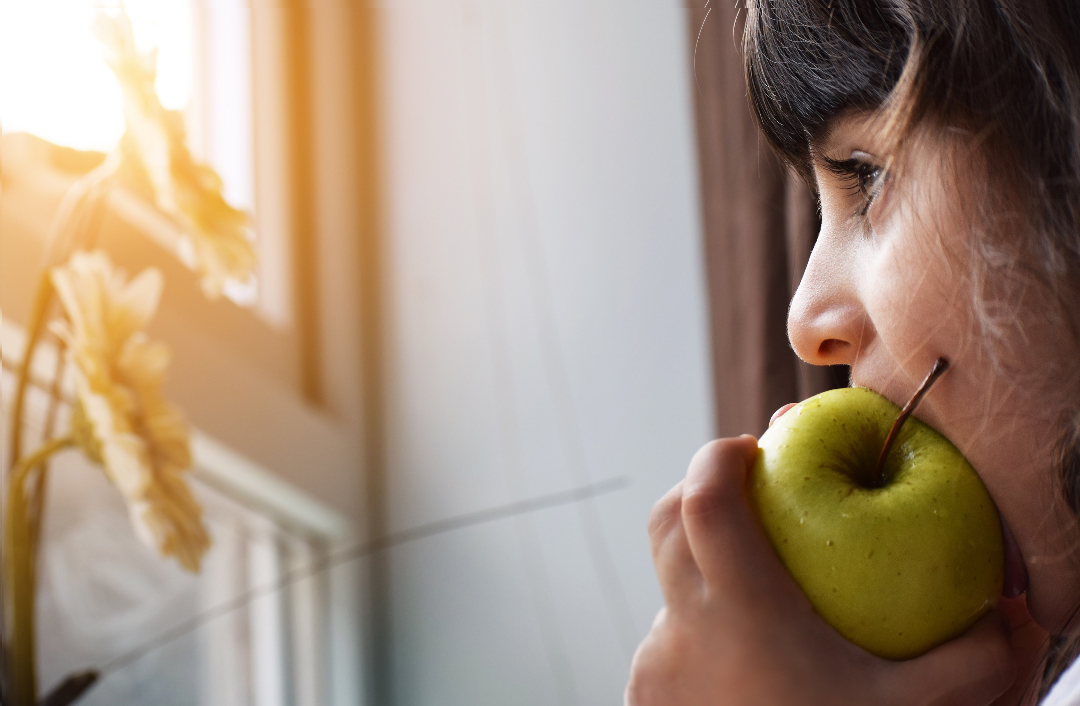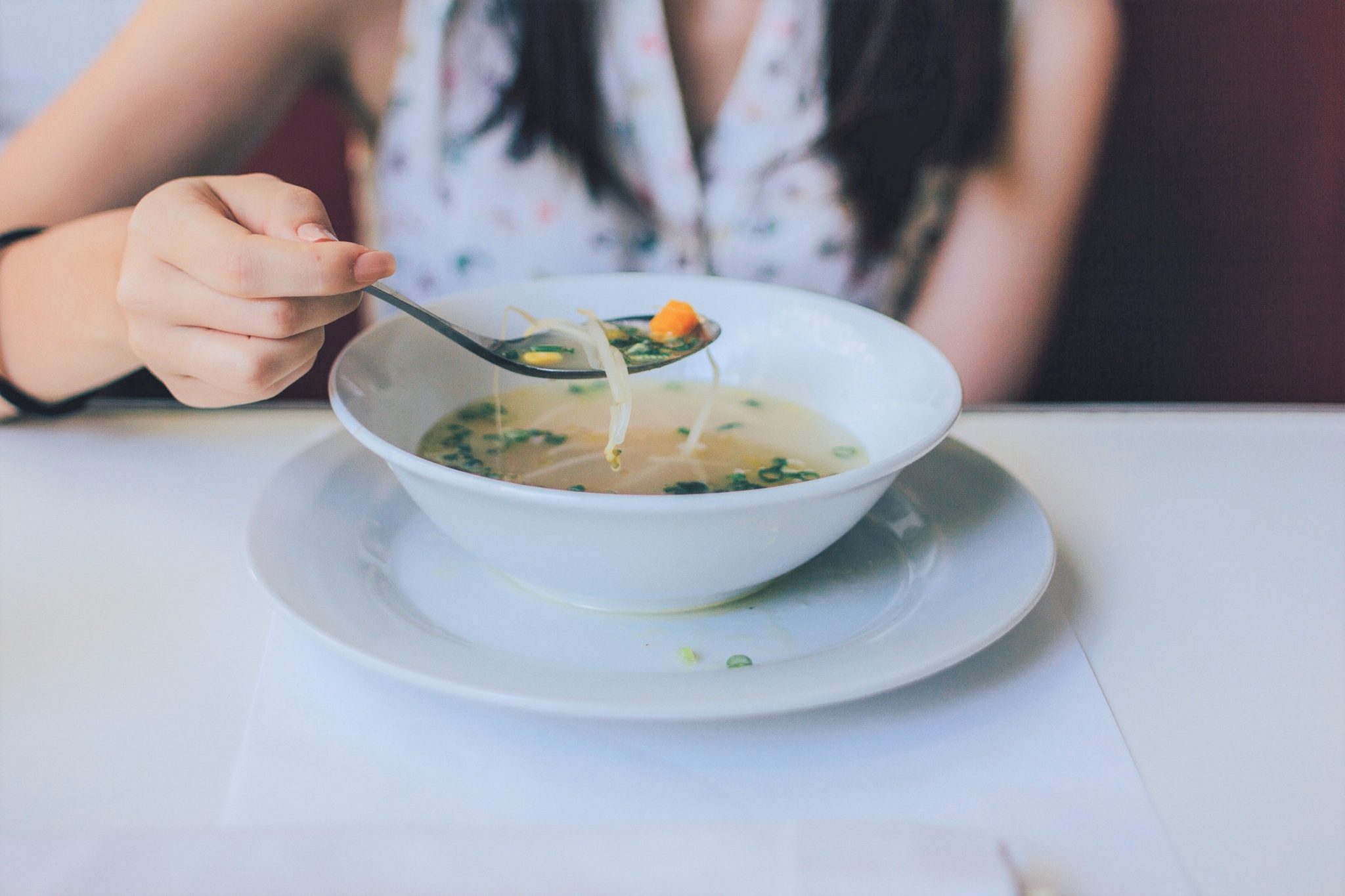
As the world continues to practise social distancing measures, you may be wondering how this can affect your gut health and what you can do about it.
It’s reasonable that many of us feel displaced from the usual activities that we would otherwise be doing to promote our general health and wellbeing. Activities such as meeting friends for coffee or hitting the gym have been put on hold. For those that are self-isolating, even getting groceries can present a challenge. While restrictions are gradually being lifted, some social distancing measures will likely remain in place for some time.
How could social distancing and self-isolation affect gut health?
Maintaining a good social life is not only fun but can benefit both our physical and mental health. There is even evidence suggesting social interactions promote gut health and microbial diversity. However, in these unprecedented times, we must sacrifice that physical connection for the protection of ourselves and those around us. While we may not be going out as much, there are still things we can do to take care of our gut microbiome during this period of social distancing.
Why is a healthy gut microbiome so important?
Your gut microbiome can help support your immune system and overall health in many ways, such as preventing pathogens from colonising, suppressing inflammation, maintaining the gut barrier, regulating appetite, and increasing serotonin production by our gut cells1,2. These important functions of our gut microbiome are primarily a result of microbial diversity and the potential for your gut microbes to produce beneficial compounds called short-chain fatty acids.
While everyone harbours a unique gut microbiome, current research shows that healthy people tend to have a gut microbiome that is diverse3.
Having a high microbial diversity, meaning you have many different types of species that are evenly spread out, has become an important marker for human health. A diverse microbiome is resilient to disturbances, can help prevent pathogens from colonising, and harnesses a greater capacity for your microbes to perform different functions3,4. Healthy people also tend to have a high potential to produce substances called short-chain fatty acids which help prevent inflammation and support a strong, stable immune system- something we could all benefit from at this time1,2.

Want to know how your gut could support your immune system? Learn more.
What can you do to support your gut microbiome health during a pandemic?
Maintain physical activity
At-home exercise is a great way to boost your mental and physical health, both of which are especially important in this time of uncertainty. Studies have observed that moderate exercise can help improve microbial diversity5, so while spin classes and gym memberships are temporarily on pause, it’s still important to keep up those fitness goals from the comfort of your home. A quick scroll on the internet and you can find endless yoga channels, HIIT workouts and bodyweight routines to help you maintain your physical strength and microbial diversity until it’s time to get back to your usual workout of choice. You can also go for a walk in your local neighbourhood, or in some areas, head out for a bushwalk nearby. Stress can also have a negative impact on gut health and immune function, so in addition to exercise, this might be a good time to practise meditation for an added mental health boost.
Experiment in the kitchen
One of the reasons many of us resort to take-out is because we don’t have the time to cook every night. Now that we’re saving some time on the daily commute, take this chance to experiment with some new recipes you’ve been wanting to try but never got around to. Our beneficial gut bacteria love to feed on fibre-rich plant foods, which they convert into the health-promoting short-chain fatty acids. Chances are you can find a range of high-fibre pantry staples such as oats, brown rice, quinoa, cereals, tinned beans and lentils, nuts and seeds that are great for boosting gut health. Experiment with new fruits, vegetables and grains to get a diverse range of prebiotics to nourish your beneficial gut bugs, increase your microbial diversity and help support your immune system. If fresh produce is hard to find, even frozen fruits and vegetables can be a boost of nutrients and gut-friendly fibre.
Get outside
Social distancing doesn’t necessarily mean you have to stay locked up in your house all day. While we may have transitioned to virtual meetings and webinars, it’s still important to get some fresh air when you can.
Exposure to diverse vegetation and microbe-rich soil can increase the abundance of beneficial bacteria in our gut7.
Microba’s own data has found that individuals with a home garden had a higher number of species in their gut microbiome. Gardening is one example of an activity that can be enjoyed close to home during a time of limited public outings. Plus, those home-grown plants contain high amounts of vitamins and minerals that are critical in supporting our immune systems when we may be more susceptible to infection. If you don’t have access to a home garden, several states across Australia have reopened local parks and National Parks which allows you to go for a picnic or a bushwalk with a friend or family member.

Following on that note, the extra dose of vitamin D you catch while nurturing your green thumb or enjoying the great outdoors may boost microbial diversity, too! One small study found that exposure to UVB rays (which stimulate the production of vitamin D) increased the gut microbial diversity in vitamin D-deficient women8. In addition to its benefits for gut health, vitamin D is important for bone strength, cell growth and supporting the immune system. According to Cancer Council Australia, most people attain adequate vitamin D levels through regular incidental exposure to the sun9. So, all the more reason to get outside and sensibly catch some rays if you can!
Switch to virtual morning tea and social hours
Morning tea is an essential part of Australian life that is likely to be affected during this period of social distancing. However, while cafes and restaurants remain closed for dining in, we live in a beautiful time where technology can keep us connected no matter the distance. No need to reschedule those coffee dates- just move them online! Research shows that the consumption of polyphenol-rich drinks such as coffee and tea can boost our microbial diversity10. Socialising provides several benefits for our overall health, so even in this time of social distancing, grab a cup of your favourite gut-friendly brew and continue to nourish your relationships with loved ones online.
What’s important
As we continue to experience changes in our daily routines and way of life, it’s important to remember that we can still do our best to remain healthy and support each other. Whether you’re trying new recipes, at-home fitness routines or simply practising ways to keep calm, these are all ways you can support your gut health and overall wellbeing.
For specific information or advice on COVID-19, please visit the Australian Government Department of Health website.
*The information regarding Australian social distancing measures was correct as of 7 May 2020.

Curious what your gut can reveal about your health? Find out more.
This microbiome test is not intended to be used to diagnose or treat medical conditions. A full disclaimer is available here
References
1. Koh, A., De Vadder, F., Kovatcheva-Datchary, P., & Bäckhed, F. .
From dietary fiber to host physiology: short-chain fatty acids as key bacterial metabolites. .
Cell, 2016; 1332-1345. . Doi: DOI: 10.1016/j.cell.2016.05.041.
2. Belkaid, Y., & Hand, T. .
Role of the microbiota in immunity and inflammation. .
Cell, 2014; 121-141. . Doi: DOI: 10.1016/j.cell.2014.03.011.
3. Rinninella, E., Raoul, P., Cintoni, M., et al. .
What is the healthy gut microbiota composition? A changing ecosystem across age, environment, diet, and diseases. .
Microorganisms, 2019. . Doi: DOI: 10.3390/microorganisms7010014.
4. Lozupone, C.A., Stombaugh, J., Gordon, J., Jansson, J., & Knight, R. .
Diversity, stability and resilience of the human gut microbiota. .
Nature, 2013. . Doi: DOI: 10.1038/nature11550.
5. Monda, V., Villano, I., Messina, A., et al. .
Exercise modifies the gut microbiota with positive health effects. .
Oxid Med Cell Longev, 2017. . Doi: DOI: 10.1155/2017/3831972.
6. Karl, J.P., Hatch, A.M., Arcidiacono, S.M., et al. .
Effects of psychological, environmental and physical stressors on the gut microbiota. .
Front Microbiol, 2018. . Doi: DOI: 10.3389/fmicb.2018.02013.
7. Parajuli, A., Hui, N., Puhakka, R., et al. .
Yard vegetation is associated with gut microbiota composition. .
Science of the Total Environment, 2020. . Doi: DOI: 10.1016/j.scitotenv.2020.136707.
8. Bosman, E.S., Albert, A.Y., Lui, H., Dutz, J.P, Vallance, B.A. .
Skin exposure to narrow band ultraviolent (UVB) light modulates the human intestinal microbiome. .
Front. Microbiol, 2019. . Doi: DOI: 10.3389/fmicb.2019.02410.
9. Cancer Council. Vitamin D. Sun safety, 2019. https://www.cancer.org.au/preventing-cancer/sun-protection/vitamin-d/.
Vitamin D. .
Sun safety, 2019.
10. Zhernakova, A., Kurilshikov, A., Jan Bonder, M., et al. .
Population-based metagenomics analysis reveals markers for gut microbiome composition and diversity. .
Science, 2016; 565-569. . Doi: DOI: 10.1126/science.aad3369.


